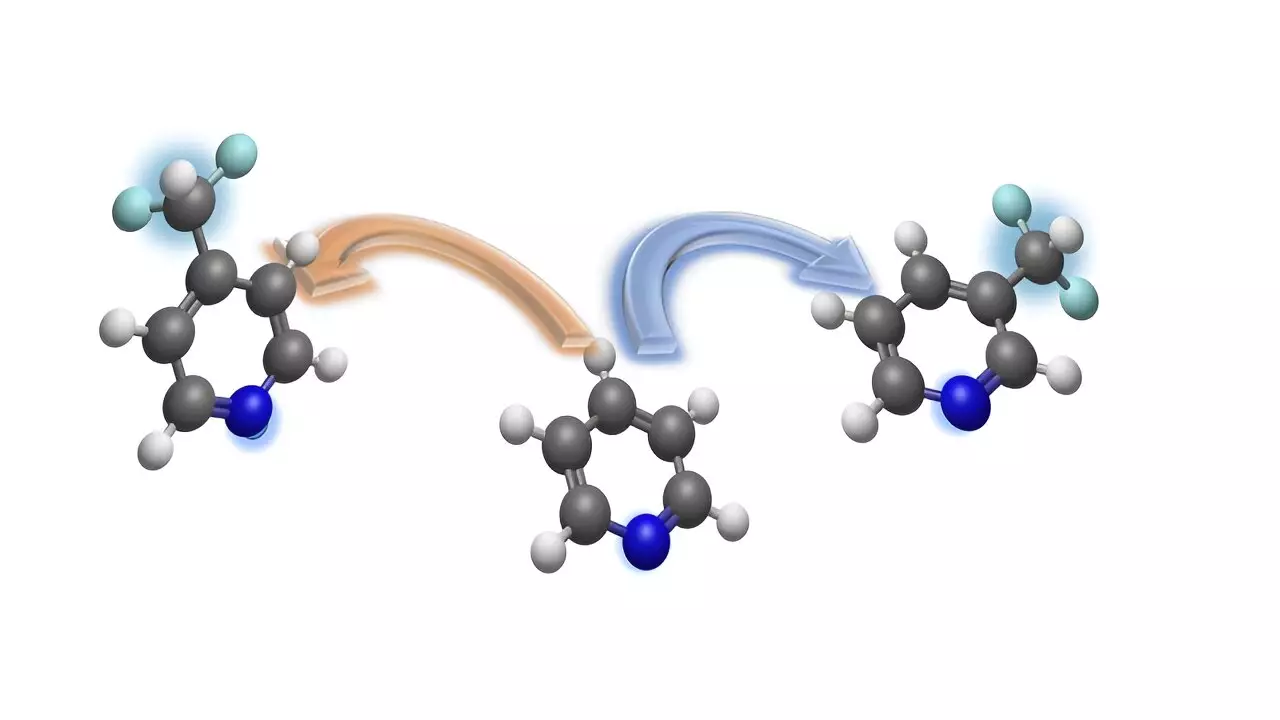Chemists at the University of Münster have successfully developed a method for the selective integration of the difluoromethyl group into pyridines. This development opens up new possibilities for drug research by allowing for the creation of bioactive molecules with enhanced properties.
Why the Difluoromethyl Group Matters
The difluoromethyl group, consisting of carbon, two fluorine atoms, and a hydrogen atom, is a crucial component in the development of potential drugs and agrochemicals. By replacing a hydrogen atom in pyridines with a difluoromethyl group, chemists can produce ring structures that hold promise for pharmaceutical applications.
The team led by Prof Dr. Armido Studer has introduced a novel strategy for precisely incorporating the difluoromethyl group into pyridines at specific sites, either at the meta-position or para-position. This innovative approach addresses the challenge of regioselective difluoromethylation in pyridines, offering a solution that was previously unavailable in the field of chemistry.
Due to the inert nature of pyridines, the chemists implemented a temporary dearomatization strategy to facilitate the reaction with reagents containing difluoromethyl groups. This method not only simplifies the synthesis process but also allows for the easy conversion of pyridine derivatives into functionalized compounds, making it a valuable tool in drug design.
Dr. Pengwei Xu, a postdoctoral researcher involved in the study, highlights the practicality and cost-effectiveness of the method, emphasizing its potential relevance for drug development. With commercially available reagents and a straightforward procedure, this methodology presents an efficient approach to enhancing the pharmacological properties of pyridine-containing molecules.
The successful integration of the difluoromethyl group into pyridines represents a significant advancement in the field of drug research. By offering a targeted and efficient method for modifying bioactive compounds, this development has the potential to drive innovation and accelerate the discovery of new pharmaceutical agents.


Leave a Reply